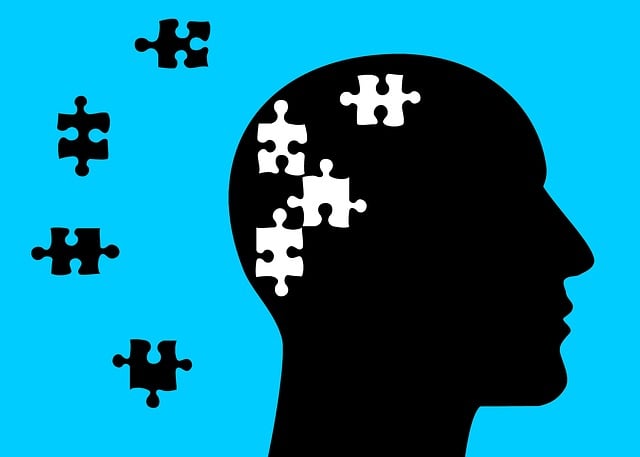Young adults face significant stress from academic demands, career aspirations, and personal connections, often leading to anxiety or mental health crises. Effective management requires therapy and crisis counseling, which help identify triggers and teach conflict resolution techniques and emotional strength development. Crisis counseling provides immediate support, fostering open communication and coping strategies, while long-term therapy focuses on building resilience through emotional healing, self-care practices, and mindfulness. Integrating these approaches with regular exercise and mental wellness journaling enhances overall well-being for young adults.
Stress reduction is a vital topic for young adults navigating today’s challenges. This article explores effective strategies to mitigate stress, focusing on crisis counseling and therapy techniques tailored for this demographic. Understanding the impact of stress on mental health is crucial. We delve into immediate support through crisis counseling, offering a safe space for expression. Additionally, we present long-term resilience-building strategies and highlight specific therapy types proven beneficial for young adults seeking to manage stress and enhance their overall well-being.
- Understanding Stress and Its Impact on Young Adults
- Crisis Counseling: A Supportive Approach for Overcoming Stress
- Effective Therapy Techniques for Reducing Stress in Young Adults
- Building Resilience: Long-Term Strategies for Stress Management
Understanding Stress and Its Impact on Young Adults

Stress is a prevalent issue among young adults, often stemming from academic pressures, career aspirations, and personal relationships. It can manifest as anxiety, depression, or even more severe mental health crises. Understanding stress is the first step towards managing it effectively. Young adults who experience prolonged or intense stress may benefit from therapy or crisis counseling to develop coping mechanisms and enhance their mental wellness. These support systems encourage individuals to explore the root causes of their stress, offering valuable tools like conflict resolution techniques and inner strength development through various coaching programs.
By prioritizing mental health, young adults can navigate the challenges of everyday life with resilience. Therapy provides a safe space for them to express their feelings, process difficult emotions, and learn healthy ways to manage stress. Crisis counseling, tailored to acute situations, ensures immediate support during times of intense distress. Through these professional interventions, young adults are empowered to take charge of their mental wellness, fostering a sense of stability and overall well-being.
Crisis Counseling: A Supportive Approach for Overcoming Stress

Crisis counseling offers a supportive approach to help young adults overcome stress and its associated challenges. This therapeutic method focuses on providing immediate assistance and guidance during times of crisis, ensuring individuals feel heard and understood. By facilitating open communication, crisis counselors create a safe space for clients to process their emotions, gain clarity, and develop effective coping strategies. The goal is not only to address the current crisis but also to empower young adults with long-lasting skills for stress management.
This approach emphasizes self-esteem improvement and emotional intelligence as key components of stress reduction. Counselors assist clients in identifying negative thought patterns and beliefs that contribute to stress, helping them cultivate a more positive and resilient mindset. Through this process, individuals can enhance their emotional intelligence, enabling better understanding and regulation of their own emotions and those of others, which is crucial for navigating stressful situations effectively.
Effective Therapy Techniques for Reducing Stress in Young Adults

Stress is a common challenge for young adults navigating personal and professional demands. Effective therapy techniques play a pivotal role in equipping them with tools to manage and reduce stress levels. Crisis counseling, tailored specifically for this demographic, offers immediate support during stressful events, helping individuals develop coping strategies to prevent future crises.
Integrating mental health education programs designed to foster positive thinking and emotional well-being promotion techniques can significantly impact stress reduction. These programs empower young adults with self-care practices, resilience-building skills, and mindfulness strategies, enabling them to proactively manage stress and enhance their overall mental health and quality of life.
Building Resilience: Long-Term Strategies for Stress Management

Building resilience is a key component of long-term stress management, especially for young adults navigating life’s challenges. Crisis counseling and therapy play a pivotal role in equipping individuals with coping mechanisms to face stressful situations head-on. These therapeutic approaches focus on emotional healing processes, fostering an individual’s ability to bounce back from adversity. By delving into their thoughts and feelings, young adults can gain valuable insights, learn effective stress management techniques, and develop healthier ways of dealing with life’s pressures.
Mental wellness journaling, for instance, can be a powerful tool within this framework. It encourages individuals to reflect on their experiences, identify triggers, and track progress in emotional healing. Moreover, regular exercise guidance can help regulate stress hormones, promote better sleep, and enhance overall mental wellness. Integrating such practices into daily routines empowers young adults to proactively manage stress, fostering resilience that will serve them throughout their lives.
In conclusion, effectively managing stress among young adults involves a multi-faceted approach. From understanding its profound impact to employing therapeutic techniques like crisis counseling and exploring long-term strategies like building resilience, there are numerous avenues to reduce and prevent stress. By leveraging these methods, young adults can enhance their overall well-being, fostering a healthier and more balanced life. For those seeking tailored support, therapy for young adults plays a pivotal role in navigating the challenges of modern living and cultivating mental fortitude.










